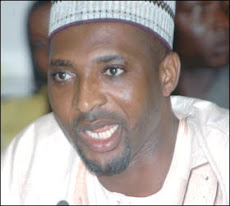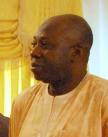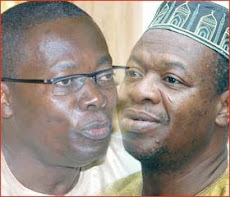But what is the logic of this position? No government may question any contract entered into by a predecessor, no matter how corruptly? That if you are a dreadfully corrupt foreign businessman, who has bribed a minister, you only have to hang on until the government changes, and then you cannot be investigated? Plainly this is a nonsense.
The fact is that, as detailed in a series of articles in the Financial Times of London, there are a whole number of questions about the Kosmos deal which give experienced observers great cause for concern.
One which particularly worries me is how, on the best oilfield in Ghana, Kosmos were able to get a royalty rate of only 5%, when the average on other fields is over 11%. There are suggestions that partners from EO were active on the Ghanaian government side of the negotiation.
There are also credible stories of Kosmos handing EO millions of dollars in cash notes for “marketing and publicity”.
Is Ghana forbidden from investigation because the government has changed? No, and they must not be bullied out of it by the British, Americans, IMF or World Bank. Those will always back wealthy Western companies against a developing African nation.
The Vodafone deal suffered – at the very least – from a lack of transparency and a lack of a level playing field for others – including France Telecom – who wished to compete. The final sales price was definitely too cheap.
I would like to know how Ghana Airways’ invaluable routes were awarded to GIA - a bunch of obscure and inexperienced investors who came only fourth in the official assessment of bids. The result has been the almost total disappearance of Ghana’s whole aviation industry.
I would like to know how industrial development funds were given to a network of companies the ultimate ownership of which traced back to the Minister of Industry.
The British High Commissioner has the problem entirely backwards. It is not that the government is not honouring existing contracts. I am Chairman of several companies, including Atholl Energy. Atholl had a contract with the NPP government which has been honoured by the NDC government, because we carry our our work diligently and honestly.
The problem is that where contracts are not honest, action has not been fast enough or decisive enough to root out corruption.
Two of the worst examples are in the energy sector. Let us look at the case of another British company, Zakhem International Ltd. They are building the Kpone Power Project for VRA. VRA bought the turbines from the manufacturer, Alsthom for US $70 million. They then paid Zakhem US $80 million upfront to install them and provide the ancillary equipment.
After three years, what do Ghanaian taxpayers have to show for their US $150 million? Absolutely nothing. An empty field at Kpone, surrounded by Ghana’s longest concrete wall so the Ghanaian public cannot see that their money has been stolen.
What is happening about it? Nothing, because Zakhem and their Ghanaian partners have stolen enough money to bribe all the officials involved. They are now claiming around town that the new government is also “In their pocket”.
Most of the $80 million has vanished forever, while the $70 million turbines are now badly damaged by disuse.
Or look at Balkan Energy. They claimed to have spent US $100 million on refurbishing the Osagyefo barge, at a time when they had really spent less than US10 million.
Balkan stand to make a total of about $1.5 billion dollars in profit from the people of Ghana from this terrible deal. It is the most corrupt contract I have ever seen. It is astonishing that a country like Ghana would enter into a contract with Balkan, whose owner, Gene E Phillips, has stood trial as a gangster in the United States.
These are not crimes without a victim. Everyone who pays any VAT or other tax in Ghana is putting money into the pockets of these disgraceful conmen. Most of the taxpayers of Ghana are very poor, and the money is being taken by people who are very rich.
That is why I am speaking out. I am not supporting any political party. I am supporting the ordinary people of Ghana.
I first spoke out about corruption in Ghana back in 1999, when I was Deputy High Commissioner there. It caused a sensation in the Ghanaian media at the time. But people do not know that I was nearly sacked by the British government as a result.
So Nick Westcott is only continuing a British hypocritical tradition of condemning corruption, unless it is British corruption.
The truth is that sadly there was a major increase in corruption in Ghana especially in 2007 and 2008. That was a major reason why the Ghanaian people voted to change their government. But so far there is little indication that the new government has done much to root out the corruption.
So rather than protecting the corrupt, the British High Commissioner should be offering help and assistance actively to attack corruption. That includes corruption by British companies.
He should also remember that, with oil revenues within touching distance, Ghana will soon have her own investment funds and no longer be so dependent on foreign investors. It is not for the colonial master to kick Ghana. The boot will soon be on the other foot.
By Craig Murray
Craig Murray was formerly a deputy High Commissioner for Britain in Ghana
This article is taken from his blog: http://www.craigmurray.org.uk/













1 comment:
You have really great taste on catch article titles, even when you are not interested in this topic you push to read it
Post a Comment